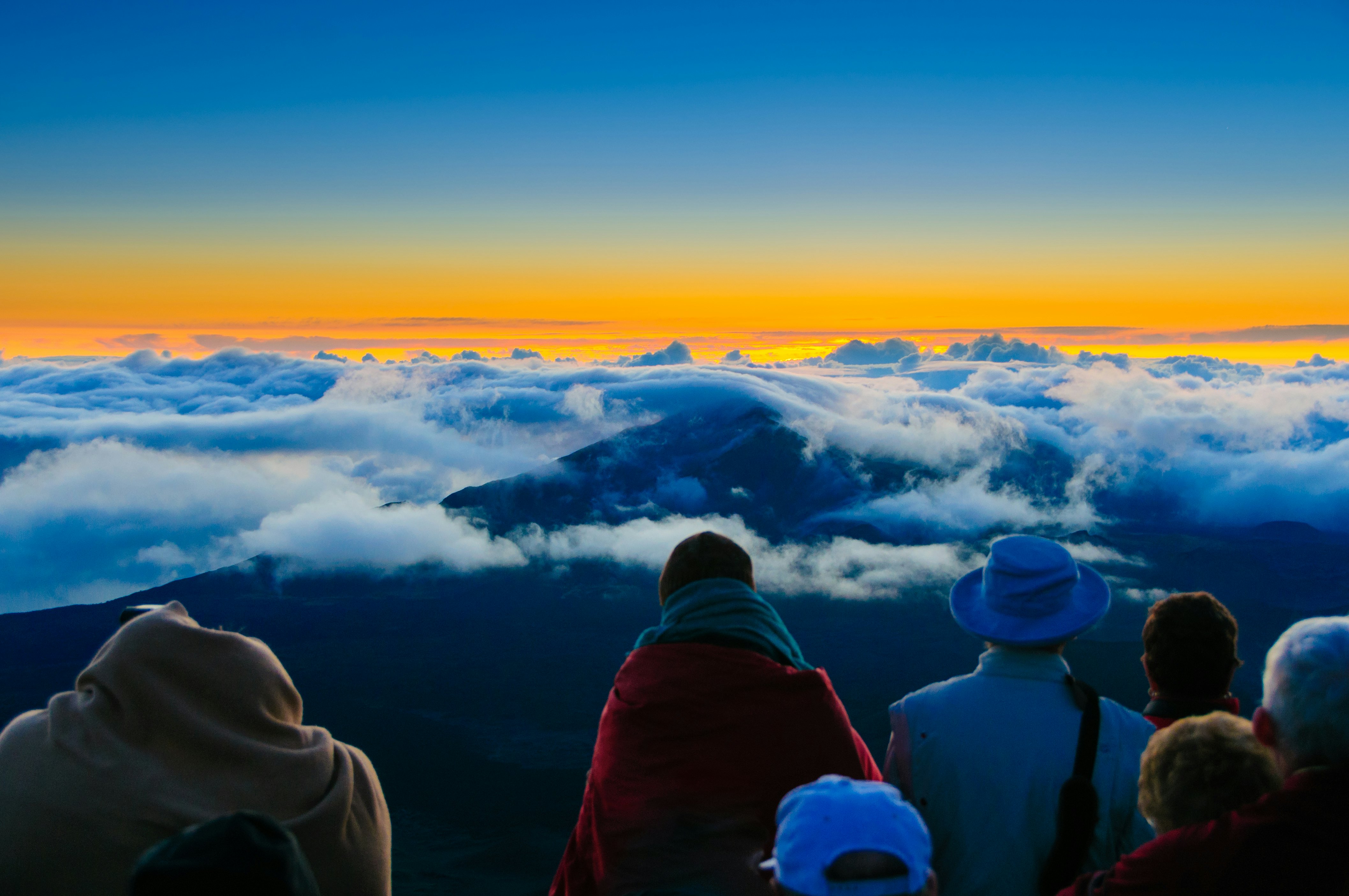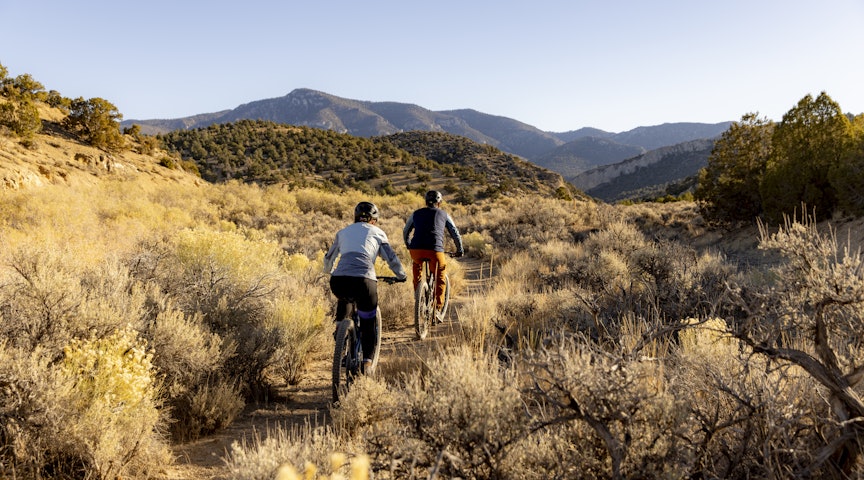

Angel’s Landing in Zion National Park is one of the country’s most exciting – and popular – hikes. You’ll need to reserve a slot in advance © Jordan Siemens / Getty Images
Last year, national parks all over the USA were ravaged by extreme weather events, resulting in closures to critical byways, park entrances and hiking trails.
Major flooding and mudslides impacted parks like Glacier, Death Valley, Joshua Tree and Yellowstone, while droughts and widespread forest fires impacted Yosemite.
For years, scientists have warned of the parallels between increased frequency and intensity of major weather events and climate change, predicting that these once-rare events would eventually become the norm. Which means, alas, that this summer could be just like last.
But that doesn’t mean that visitors can’t enjoy these national treasures. Many of the park entrances, roads and trails that were affected last year have reopened, and are ready to welcome visitors back for the 2023 season.
“We’ve been very fortunate that through the bipartisan infrastructure law, the Great American Outdoors Act and other funding sources, we are seeing unprecedented levels of funding for maintenance and repairs,” says Kathy Kupper, the public affairs specialist for the National Park Service. “And as roads are being rebuilt and trails restored, there’s always an eye toward what we can do to lessen impacts from severe weather and other external events.”
With the quick recovery from last season’s weather events and ongoing projects addressing the parks’ needs, the upcoming season is looking hopeful at our national parks. In fact, with proper planning, preparation and an idea of what to expect, now might be a better time than ever to experience their splendor.
Book your reservations in advance at these national parks
In the years leading up to the COVID-19 pandemic, huge crowds and long waits to get into the most popular parks were a common occurrence. In order to combat this overcrowding and associated human impact on the fragile ecosystems, the NPS began requiring visitors to make reservations in advance at a number of the most popular parks. With the exception of Yosemite, which will no longer be requiring reservations in 2023 (except to hike Half Dome), many of the parks that used a reservation system in 2022 will be doing so again this year.
Since peak daytime slots fill up fast, consider waking up early and heading into a park for sunrise. This can often result in some incredible experiences, including wildlife viewings, that don’t typically happen in the middle of the day.

Acadia National Park: Continuing the policy launched in 2021, Acadia will again be requiring vehicle reservations to drive the Cadillac Summit Rd from mid-May through October 22. Thirty percent of reservations are made available exactly 90 days ahead of each date, while the remaining spots will be released at 10am two days in advance. Head up a half-hour before sunrise to catch the first light in the US.
Arches National Park: Between April 1 and October 31 from 7am until 4pm daily, Arches National Park will require timed entry reservations. The $2 tickets can be purchased on a first come, first served basis in monthly blocks three months in advance of any visit.
Glacier National Park: In Glacier National Park, tickets will be required to access Going-to-the-Sun Rd – a drive that completes any visit to the park – from May 26 through September 10 when entering through the West entrance, and from July 1 through September 10 when entering through the St Mary entrance. Reservations will also be required to access the North Fork area from May 26 through September 10 and the Many Glacier and Two Medicine Valleys from July 1 through September 10. Reservations are required between 6am until 3pm. Tickets will be released in blocks beginning February 1 for Going-to-the-Sun Rd and the North Fork area, and on March 1 for Many Glacier and Two Medicine Valleys. All will available for purchase at Recreation.gov for $2.

Haleakalā National Park: Rising 10,023 feet from the ocean, Haleakalā – a dormant volcano whose name directly translates to “house of the sun” – serves as one of the best points in the entire US to watch the sunrise. Because of the crowds it draws each morning, a reservation system has been implemented between 3 and 7am. Reservations can be made up to 60 days in advance of your visit for a $1 fee.
Rocky Mountain National Park: In an attempt to stagger visitor entries, visitors to Rocky Mountain National Park will need a vehicle pass when entering the park from May 26 through October 22. Two separate permits will be available: one when entering the park using the Bear Lake Rd Corridor between 5am and 6pm, and another for the remainder of the park from 9am until 2pm.
Shenandoah National Park: According to a press release, it hasn’t yet been decided if Shenandoah’s Old Rag hike will require reservations in 2023. Data from last year’s pilot program is under review, and will be combined with input from visitors to make a decision on the future of the permitting program. Regardless, the hike can get extremely crowded, and it’s a good idea to either get an early start or tackle the hike during a shoulder season.

Yosemite National Park: This year, Yosemite will not be requiring a reservation to access any part of the park – with the exception of Half Dome. Those looking to hike the famed monolith will need to acquire a permit via a lottery system, with a limit of 225 day hikers and 75 backpackers daily. While access is dependent on weather and conditions, the hike can typically be done between mid-May and mid-October. There will be a pre-season lottery application period from March 1 through March 31, with an additional lottery each day through the season two days prior to the hiking date.
Zion National Park: Angel’s Landing in Zion is one of the most popular hikes in any US national park. The trail to the summit ascends along a sandstone spine, providing hikers with spectacular views and a true sense of adventure along the way. The lottery-based permitting system introduced on April 1, 2022 is still in effect; enter for a slot the day before your planned hike. There are also date blocks you can apply for at 8am Mountain Time on specific days. For example, a lottery opened on January 1 for permits valid between March 1 through May 31 that allows applicants to enter seven preferred days and times to complete the hike within that window.

Consider heading to one of the lesser-visited parks
If recent trends continue, this summer is likely going to be a busy one at the most popular parks. But with 63 national parks and a total of 423 sites operated by the National Park Service in every corner of the US, it’s not hard to get away from the crowds even during the busiest season. In fact, of the nearly 300 million visits to the national parks in 2021, over half of them were at just 25 parks. We assume the forthcoming numbers from 2022 will tell a similar story.
That’s great news for anyone open to exploring beyond the most famous parks – and who doesn't care for traffic jams. Parks like North Cascades in Washington and Isle Royale in Michigan are fairly accessible, experience a fraction of the visitors as some of the more popular parks and are just as spectacular.
“There’s only two ways to become part of the National Park Service, and that is through Congress or the president,” says Kupper. “So in order to be recognized, they have to have national significance. Each one is spectacular and has a story to tell so we encourage people to get out and discover all of them.”
Free days at national parks in 2023
If your schedule allows, consider visiting a national park during one of their free days this year. On January 16 (Martin Luther King Jr Day), April 22 (the first day of National Park Week), August 4 (the Great American Outdoors Act anniversary), September 23 (National Public Lands Day) and November 11 (Veterans Day), entry fees will be waived to all national parks. It’s important to remember parks with reservation systems in place will still require you to sign up for a slot, even on free days.

Recreate responsibly
While this always holds true regardless of where and when you’re exploring, the elevated number of visitors to the national parks makes recreating responsibly that much more important.
“National parks belong to all of us, and the National Park Service manages them on behalf of all Americans,” says Kupper. “So we really need everyone’s help to preserve and protect the parks. That includes staying on trail, respecting wildlife, giving [the wildlife] space, and following [leave no trace] principles. We want to make sure everyone can experience the parks and have a safe and enjoyable visit.”
In addition to respecting the land and wildlife, it’s also important to ensure you’re prepared for the unexpected – which means bringing the tools needed for navigation, extra layers, a headlamp, water and food, even if you’re only heading out for a short hike.
Use the National Park Service website and app to get the most out of your trip
With extreme weather events a real possibility again this year, it’s important to look at the National Park Service’s website before you leave your house. It will not only have updates on closures and conditions at each park: it can also spark ideas of sites to visit that you might not even have known existed. It’s also a good place to check on the status of ongoing repairs, like those happening at Yellowstone as a result of last summer’s flood damage. The NPS app is also a good resource, providing users with downloadable offline maps and useful information while they’re on the road.
Take your United States (USA) trip with Lonely Planet Journeys
Time to book that trip to United States (USA)
Lonely Planet Journeys takes you there with fully customizable trips to top destinations – all crafted by our local experts.

























